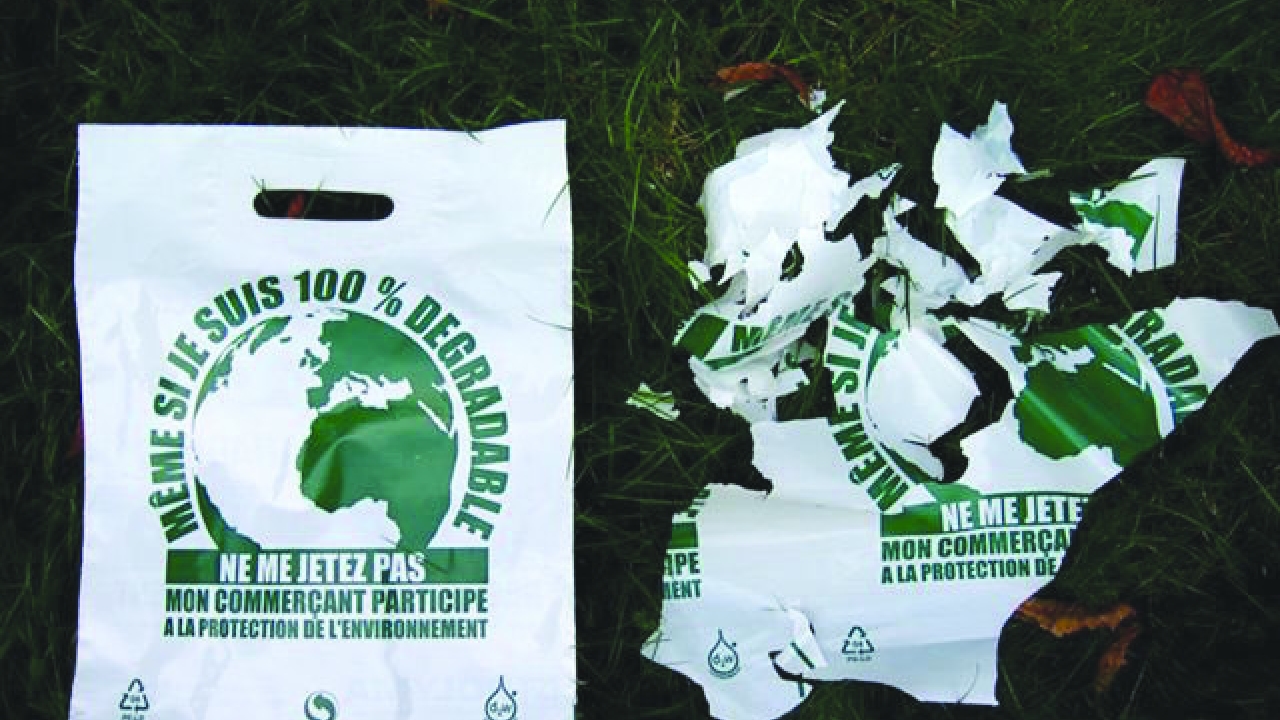Pakistan moves to ban non-degradable plastic products

- Legislation prohibits the manufacture, import, sale and use of non-degradable plastic bags and other plastic products in the limits of Islamabad Capital Territory, effective from April
- Move welcomed by controlled-life plastic solution supplier Symphony Environmental, which expects to meet criteria to become pro-degradant supplier in Pakistan
The Pakistan Environmental Protection Agency (Pak-EPA), with the approval of the country’s Ministry of Climate Change and after obtaining consent of the Law and Justice Division, is introducing legislation prohibiting the manufacture, import, sale and use of non-degradable plastic bags and other plastic products in the limits of Islamabad Capital Territory, effective from April.
Regulations, “Prohibition of non-degradable Plastic Products (Manufacture, Sale and Usage) Regulations, 2013”, have been drafted with the long-term aim of controlling the spread of waste plastic bags and to enable exporters to comply with the need for environment-friendly packaging as demanded in international markets.
The regulations define non-degradable plastic products as those that are not oxo-biodegradable, which themselves are defined as products made using polymers containing a pro-degradant additive supplied by those registered with Pak-EPA.
No pro-degradant additive shall be sold, distributed or imported by any company or manufacturer of scheduled plastic products without registration, and in order to obtain this position the applicant must submit test certificates for the additive from an independent third-party laboratory that is accredited in accordance with ISO 17025.
Tests must be carried out in accordance with the test methods prescribed by the ASTM D-6954 – 04 standard, and the reports must clearly state the percentage of the pro-degradant additive that must be consistent for all the tests, namely degradation, bio-degradation and eco-toxicity.
Such suppliers must also be a current member of the Oxo-biodegradable Plastics Association, and have ISO 9001 and ISO 14001 accreditation.
'Creating havoc'
Pakistan’s Federal Minister for Climate Change Rana M Farooq Saeed Khan stated that many countries in Asia, Europe and America have successfully controlled plastic waste by introducing oxo-biodegradable technology.
He added that the technology is simple with no need to alter machinery or processes, as a small quantity of olefin-based additive (around 1-3 percent) is mixed with the raw material to develop biodegradable properties in plastic.
These plastics have applications in the packaging of food, beverages, cigarettes and other goods.
The minister said: ‘If use of non-degradable plastic continues, it will create havoc due to poor waste collection in the country.’
Supplier support
All products made with oxo-biodegradable plastic, and all packaging in which such products are offered for sale, shall be prominently marked “Oxo-biodegradable” and shall bear the identifying mark or logo of the supplier of the pro-degradant additive.
Symphony Environmental is a global supplier of technology to make plastic oxo-biodegradable, and welcomed the move by the Government of Pakistan to introduce such legislation and supporting regulations.
Michael Laurier, chief executive officer of Symphony Environmental, said: ‘This legislation is an important step forward for Pakistan in protecting its cities, lands, waterways and coasts from the blight of plastic pollution, because it is not possible to collect or control all of the plastic, which would otherwise lie or float around in the environment for decades.
‘The Government of Pakistan has not banned plastic altogether, as it is a low-cost material essential for everyday living, and for protecting food from damage and contamination.
‘Although this legislation is important for Pakistan, it has much wider implications. The legislation prohibits not only the manufacture of conventional disposable plastic products in Pakistan, but also prevents them being imported into Pakistan.
‘This means that all companies anywhere in the world exporting to Pakistan disposable plastic products made from or packaged in conventional or bio-based PE or PP, or in PS, must make and/or package them in future with oxo-biodegradable technology from a supplier registered with the Pakistan government.
‘We are bringing this to the urgent attention of our distributors serving more than 90 countries around the world.’
d2w
Symphony Environmental offers d2w (pictured, top in a plastic bag application) as a pro-degradant for plastic, and technical director Michael Stephens said the company has all the credentials to meet the criteria to become a supplier, as laid out in the regulations.
Stephens outlined the need for and benefits of oxo-biodegradable plastics in Package Print Worldwide issue #3, 2012, and in the aftermath of the changes in Pakistani law, said: ‘Pakistan is a huge market, with some 8,000 manufacturers of plastic products.
‘Pakistan is not the first to bring in such rules, as the UAE introduced something similar at the start of 2012, primarily targeting plastic bags. This was extended a year later to cover most short-life plastic products, and Pakistan has now entered the conversation at this point.
‘Such laws are spreading into other areas too, such as Yemen and some African countries. The implications to global suppliers are huge, and multinational companies will need to use oxo-biodegradable plastic products If they want to import into these markets.’
He said that many multinationals are already using oxo-biodegrable plastic in their processes as they see the benefits without the need to legislate, and will look to introduce such products across their entire global supply chain to be able to meet the needs of those markets that legally require, and those that don’t, compliance with rules governing controlled-life plastics.
Laurier added: ‘We are anticipating substantially increased demand for d2w following the new legislation, and we are confident that our exclusive distributor, Business Dynamics Ltd, will provide the necessary support services to the industry in Pakistan.
‘A free testing service will be offered in Symphony’s laboratories, and also in Pakistan using Symphony’s unique d2detector. This is a sophisticated portable device that can tell within 60 seconds whether a plastic product is oxo-biodegradable and which additives it contains.
‘One d2detector unit has been shipped to Pakistan, and orders for d2w have been received.’
Read more about environmental issues here
Read more about substrates here
Read more news from across the Middle East here
Register here to receive Package Print Worldwide for free
Stay up to date
Subscribe to the free Label News newsletter and receive the latest content every week. We'll never share your email address.

